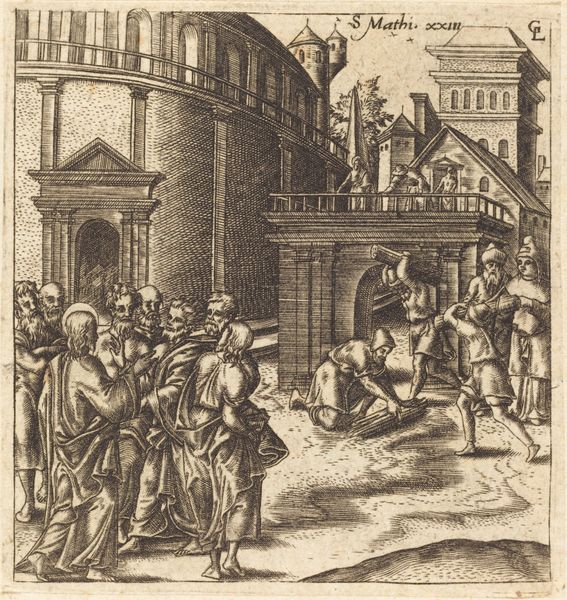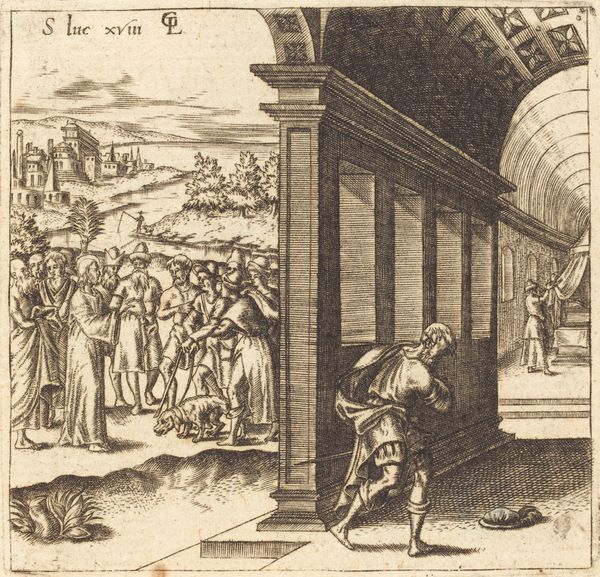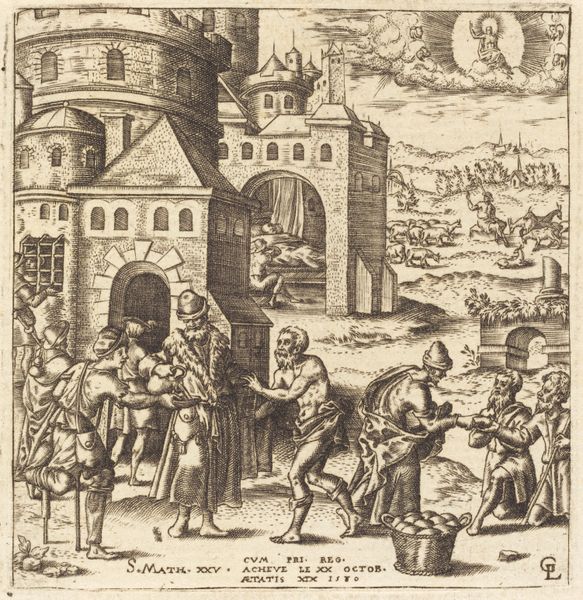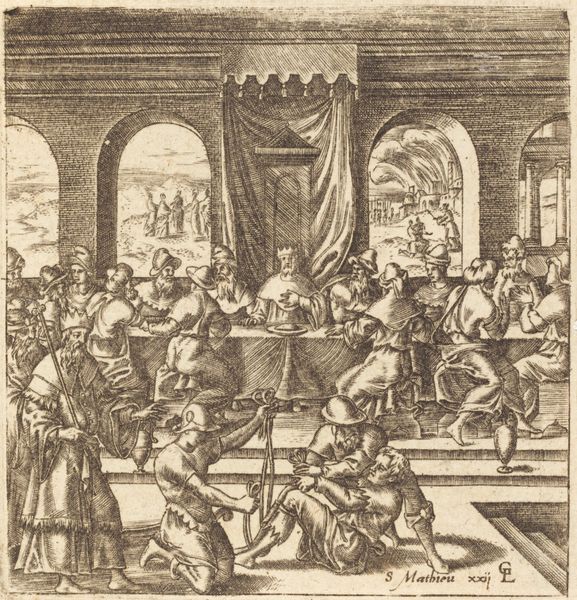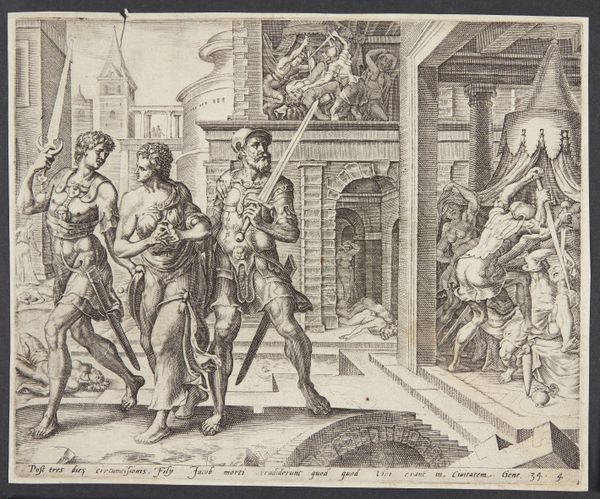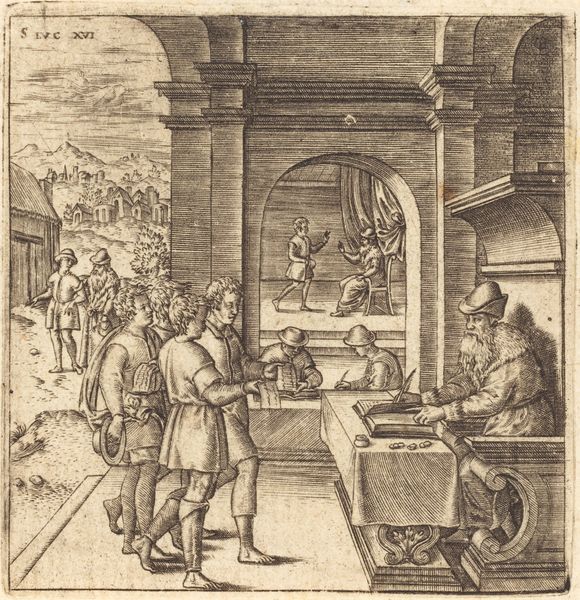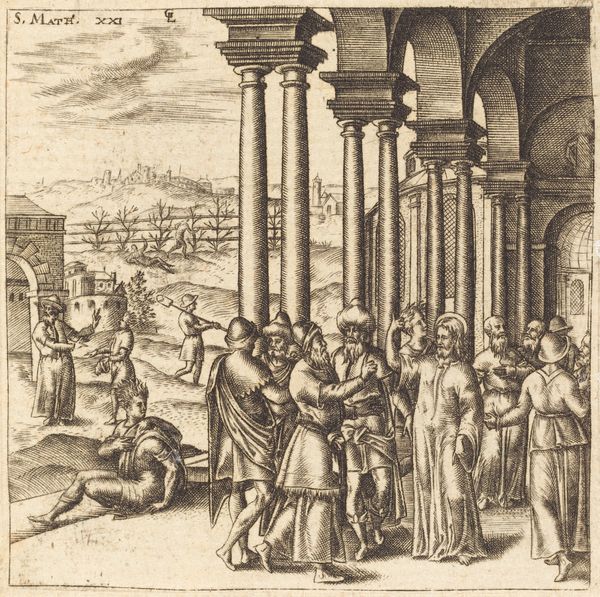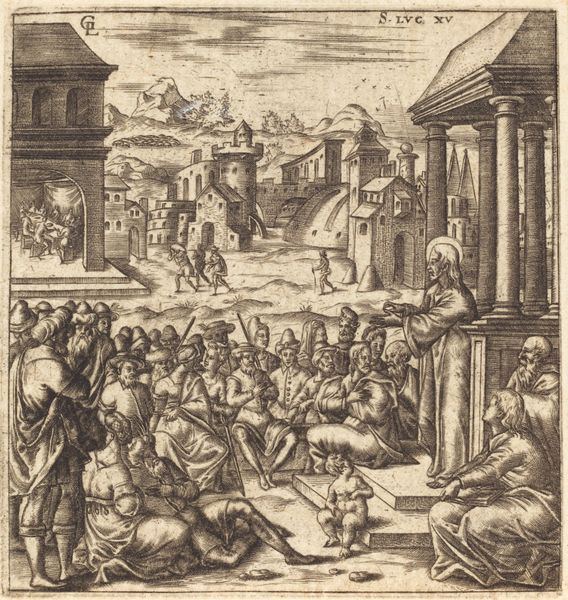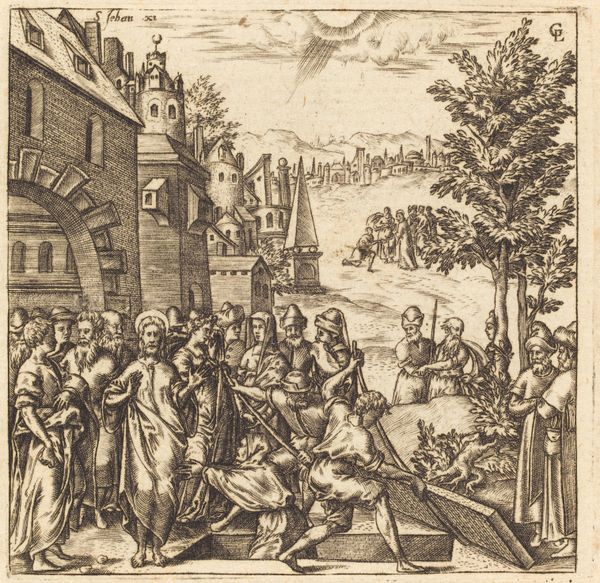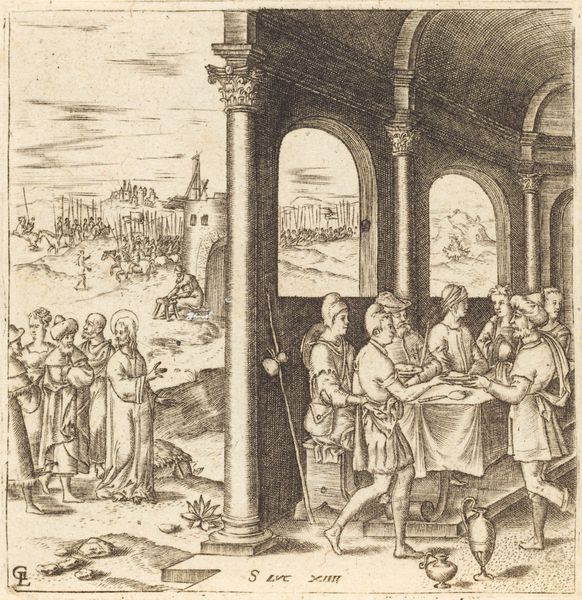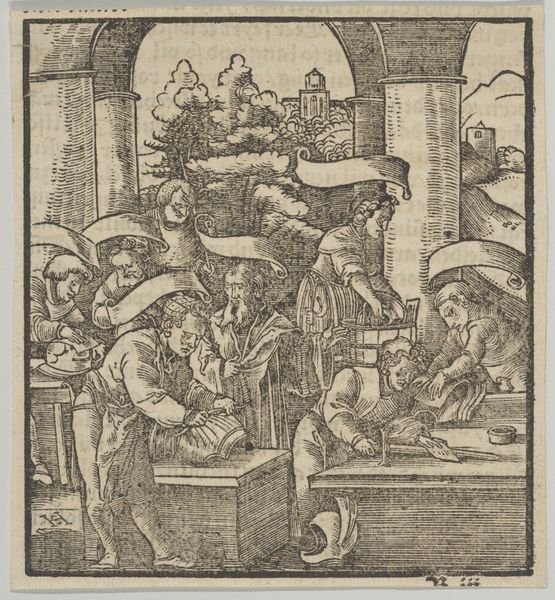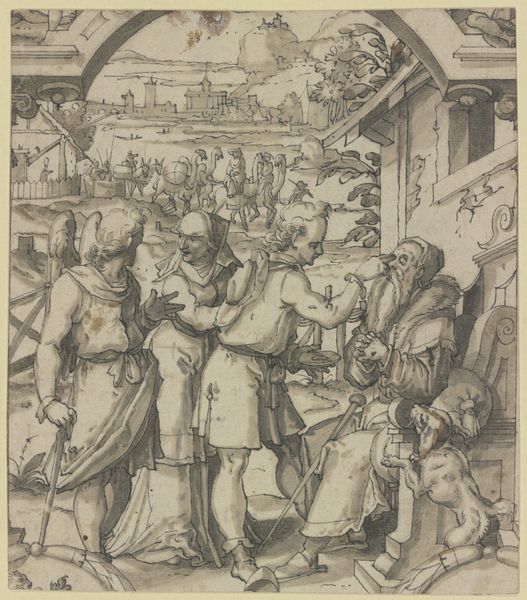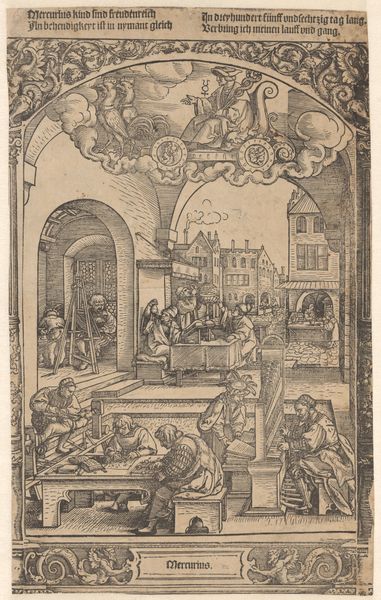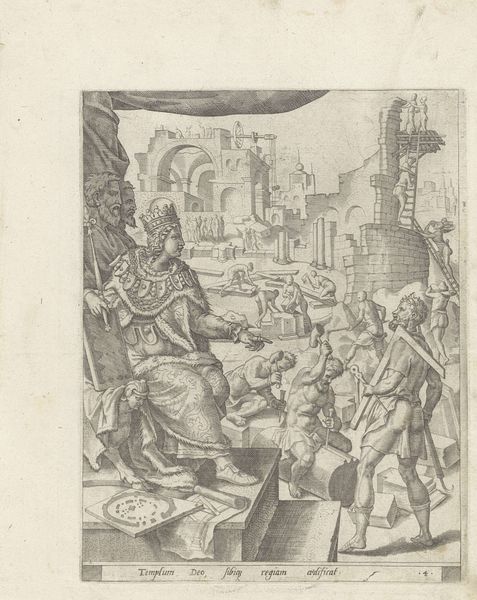
Parable of the Talents (The Worthless Servant Cast into the Outer Darkness) c. 1576 - 1580
0:00
0:00
print, engraving
#
narrative-art
# print
#
landscape
#
figuration
#
history-painting
#
italian-renaissance
#
engraving
Copyright: National Gallery of Art: CC0 1.0
Léonard Gaultier created this engraving, "Parable of the Talents," around the turn of the 17th century, a time of religious and social upheaval in France. The parable itself, from the Gospel of Matthew, speaks of a master entrusting his wealth to servants, rewarding those who multiply it and punishing the one who buries his talent. Gaultier’s image translates this moral lesson into a stark depiction of social hierarchy. We see the master, enthroned and dispensing rewards, while the 'worthless servant' is dragged away, presumably to face the outer darkness. Made during the Wars of Religion, the print would have carried a potent message: obedience and industry are rewarded, while dissent and inaction are punished. The architecture, resembling contemporary French buildings, grounds the parable in the here and now, urging viewers to reflect on their own responsibilities within the existing order. To fully understand Gaultier’s print, we might consult religious pamphlets, economic treatises, and social histories of the period, all resources that help us understand how art is always embedded in social and institutional contexts.
Comments
No comments
Be the first to comment and join the conversation on the ultimate creative platform.
